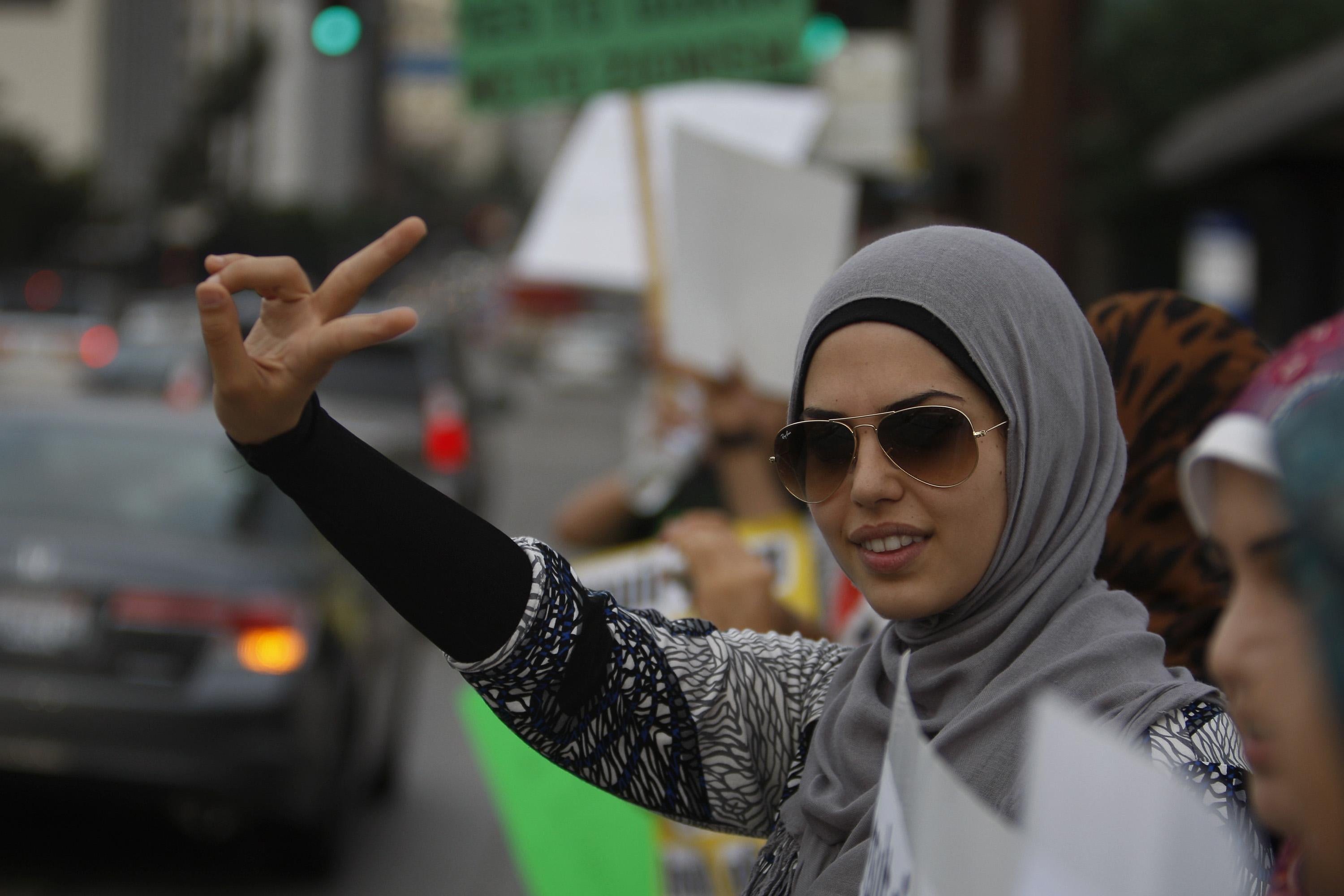In the wake of the attack on Charlie Hebdo’s offices in Paris, much has been made of the sometimes violent responses of extremists to the publication of cartoons depicting the Prophet Mohammed. Radical Islamic cleric Anjem Choudary didn’t help alleviate the stigma against the hundreds of millions of Muslims that devote to their faith peacefully.
In an op-ed in USA Today on Thursday, Choudary seemed to try to justify the attacks. “[T]he potential consequences of insulting the Messenger Muhammad are known to Muslims and non-Muslims alike,” Choudary said. “The strict punishment if found guilty of this crime under sharia (Islamic law) is capital punishment implementable by an Islamic State,” he continued.
Choudary, radical extremists, and anti-Islam polemicists alike often resort to quoting scripture out of context, or taking advantage of transliteration, as a way to distort the messages of Islam. Sharia law varies upon interpretations of scripture—and like any religion, some interpretations are more radical than others.
While extremist governments like Iran and Saudi Arabia use the death penalty as a punishment for blasphemy, its justification isn’t found in Islam. The word “blasphemy” isn’t even mentioned in the Quran, or the stories of Mohammed and his companions that make up the hadiths, which form the basis for Islamic tradition. Prominent Islamic scholars like Pakistan’s Javed Ahmad Ghamidi have repeatedly said that “blasphemy laws have no justification in Islam.” Neither does the horrible attack that took place on Wednesday.
The Quran doesn’t explicitly ban depictions of Mohammed, and it certainly does not call for violence against those who display such images, even in a mocking or offensive way. The Hadith does ban images of Mohammed, the relatives of Mohammed, Allah, and all the major prophets. But, as Reza Aslan noted in Slate in 2006, such depictions have still existed in certain sects of the religion for years without causing mass violence:
[M]uch has been written about Islam’s prohibition against physical representations of the prophet of Islam. In fact, the Muslim world abounds with magnificent images of Mohammed. (In general, Shiites and Sufis tend to be more flexible on this point than Sunnis). In some, the prophet’s face is obscured by a pillar of fire that rises from beneath his chin in a veil of flames. In others, he is unveiled and glorious, a golden nimbus hovering over his head. While some Muslims object to these well-known and widely distributed depictions, there has never been any large-scale furor over them for the simple reason that although they depict the prophet, they do so in a positive light.
So what does Islam say about depictions that are not in a positive light? Islam’s most poignant instance of aniconism came when the Prophet Mohammed returned to the city of Mecca in 630 A.D. After years fleeing from persecution, Mohammed and his followers had marched back to Mecca to rid idol worshiping from the holy city. According to the critically acclaimed book Muhammad: His Life Based on the Earliest Sources, upon entering the most sacred point in Islam’s most sacred mosque, Mohammed destroyed all the pagan idols and paintings that were sacrilegious to Islam. (He specifically guarded images of the Virgin Mary and Jesus.)
Mohammed didn’t seek out the creators of the images or sentence those responsible for the idols and sacrilegious depictions to death.
The Quran does call for condemnation of speech and actions that insult Allah, his prophets, and their relatives, but it also specifically warns against violence as a form of retaliation:
Repel evil with whatever is better; there is chance that evil may bellow down, if you repel evil with evil, the conflict flares up and both sides will dig in their heels.
The Quran also specifically states that “there shall be no compulsion in the religion.” And there is a whole Quranic chapter calling for the tolerance of different faiths.
When tragedy takes place in the name of Islam and radical extremists profess that such violence is righteous, or that these atrocities “avenge” the Prophet, they only move further away from the principles of the religion.
The Quran warns Islam’s followers “do not raise your voices above the voice of the Prophet.” Radical extremists and clerics like Anjem Choudary are the ones, religiously speaking, who are committing blasphemy. In their distortion of Islam, they attempt to raise their voices above Mohammed and Allah.
